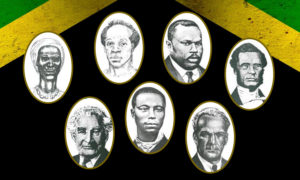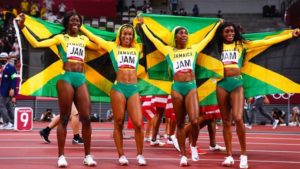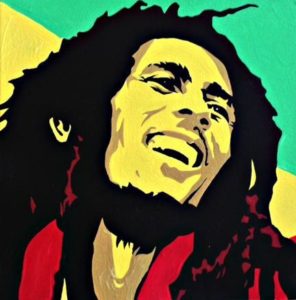|
Getting your Trinity Audio player ready...
|
Reading Time 3 mins
August 6, 2022
Today marks 60 years of Jamaica’s ‘flag’ independence from colonial Britain. This event follows Emancipation Day, which was celebrated on August 1. Undoubtedly and understandably so, there was much celebration for the former, and August 6 will follow likewise.

After all the celebration and hype have died down and as life returns to normal, what is the objective reality of Jamaica’s 60-year ‘independence’? Jamaica’s success and failure in stock-taking are imperative for a critical and judicious examination of the meaning of the independence of Jamaica and its sovereignty. This question further begs two others of equal concern: Has the intent and legacy of the National Heroes been fulfilled and honored? Has the country paid proper homage to the National Heroes for their struggle and sacrifice?
As a collective, The National Heroes Hon. Marcus Garvey, Nanny, Paul Bogle, Sam Sharpe, Sir Alexander Bustamante, Hon. Norman Manley, and George William Gordon, fought tirelessly and relentlessly against foreign domination–economic or otherwise–over the citizenry’s life.
They struggled for an equitable distribution of the fruits of labor. They advocated for the ownership and protection of the country’s natural resources. They struggled for an ideology of socio-economic development that puts the people first and foremost in word and deed. Most importantly, they struggled for a country that would pursue a path of self-determination, the fundamental objective measure of independence. How can we sincerely and unashamedly boast of freedom from the colonial masters when we follow and capitulate to the neocolonial machinations of the imperialist powers? This is a great disservice to the National Heroes and tramples upon their sacrifice and contribution to nation-building.
 The misguided policy of ‘investment through invitation’ continues and is a need for concern for all democratic people. No one in their right mind would seriously oppose foreign investments. However, the critical point is: what is the role of the state apparatus in this type of developmental model in securing and finalizing these investment agreements? What concessions are made to the multinationals and investment oligarchs to ensure that capital is safe?
The misguided policy of ‘investment through invitation’ continues and is a need for concern for all democratic people. No one in their right mind would seriously oppose foreign investments. However, the critical point is: what is the role of the state apparatus in this type of developmental model in securing and finalizing these investment agreements? What concessions are made to the multinationals and investment oligarchs to ensure that capital is safe?
Our beaches are our natural resources and property of the masses of the people and not of a privileged few. The continued privatization of beaches is a marker of our diminishing sovereignty. The right to unionize must not be stifled or circumvented by ‘toothless’ temporary contracts that provide the worker with short-term employment but no say in working conditions, demand for better wages, or healthcare and insurance benefits.
It is known that many multinationals or investment oligarchs operating in these developing countries like Jamaica influence domestic policies through strategic philanthropy and targeted election campaign contributions. In the frenzy to invite investments, the Jamaican government is not concerned with who brings in the money, as long as it can hoodwink the people with illusive promises of rebounding the economy and the faith and trust investors have in the country.
The recent negotiations with Saudi Arabia are an example of investment without integrity. Saudi Arabia has been waging a genocidal war in Yemen and is responsible for almost 15,000 civilian deaths. These attacks have destroyed hospitals, homes, and civilian facilities. The United States supplies the planes used in this war and trains Saudi pilots. Regardless of who is in the White House, the atrocities against Yemen continue. Barack Obama, Donald Trump, and Joe Biden support this crime against humanity. Is this the Jamaican government’s homage to the legacy of our National Heroes?

It is an objective fact that national development is not a linear and smooth process, as all areas will not be developed simultaneously or to the same degree. Still, the proper gauge for the progress of development is the ability of the masses to access quality essential human social services. Among these are adequate healthcare, procurement of affordable housing, and quality education, which are critical indicators of a government’s commitment to its people.
After ‘throwing’ off the yoke of colonialism, the newly independent state cannot reward the anti-colonial struggle by capitulating to neocolonial models of development and hoodwinking the population under the guise of ‘growth.’ There is growth but for the privileged few.
Our National Heroes deserve better. Their memory demands that the unfinished business of independence and self-determination be given true meaning. There is still this latent reluctance to cut free from the monarchy. Our citizens are increasingly questioning the value of our ‘flag’ independence. There can be no deference to the oppressor by the oppressed. The pursuit of genuine autonomy has to be decisive and relentless. The National Heroes must rest in peace with this reality.
 The popular discourse on the meaning of independence naturally extends to the question of Jamaican’s transition to a republic and a reimagining of national heroes and icons. Naturally, nation-building is more than economic development. A mature nation would tap into the creative energies of its people and their indigenous knowledge. Should Robert Nestor Marley’s name be added to the list of National Heroes? What about other cultural artists and indigenous thinkers?
The popular discourse on the meaning of independence naturally extends to the question of Jamaican’s transition to a republic and a reimagining of national heroes and icons. Naturally, nation-building is more than economic development. A mature nation would tap into the creative energies of its people and their indigenous knowledge. Should Robert Nestor Marley’s name be added to the list of National Heroes? What about other cultural artists and indigenous thinkers?
In the immortal words of Marcus Garvey, “If you haven’t confidence in self, you are twice defeated in the race of life. With confidence, you have won even before you have started.”
Richard Dunn can be reached at: richarddunn75@gmail.com
